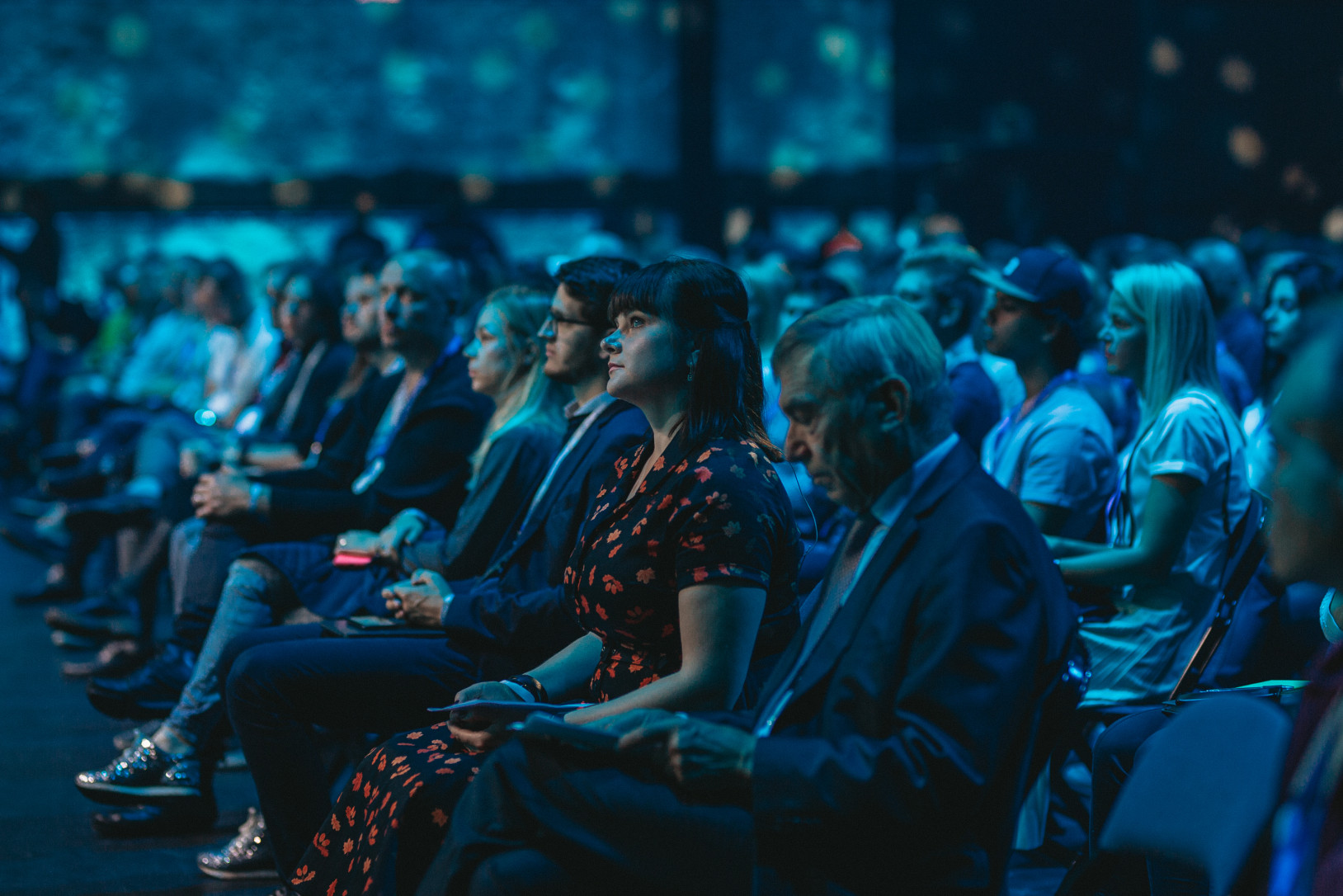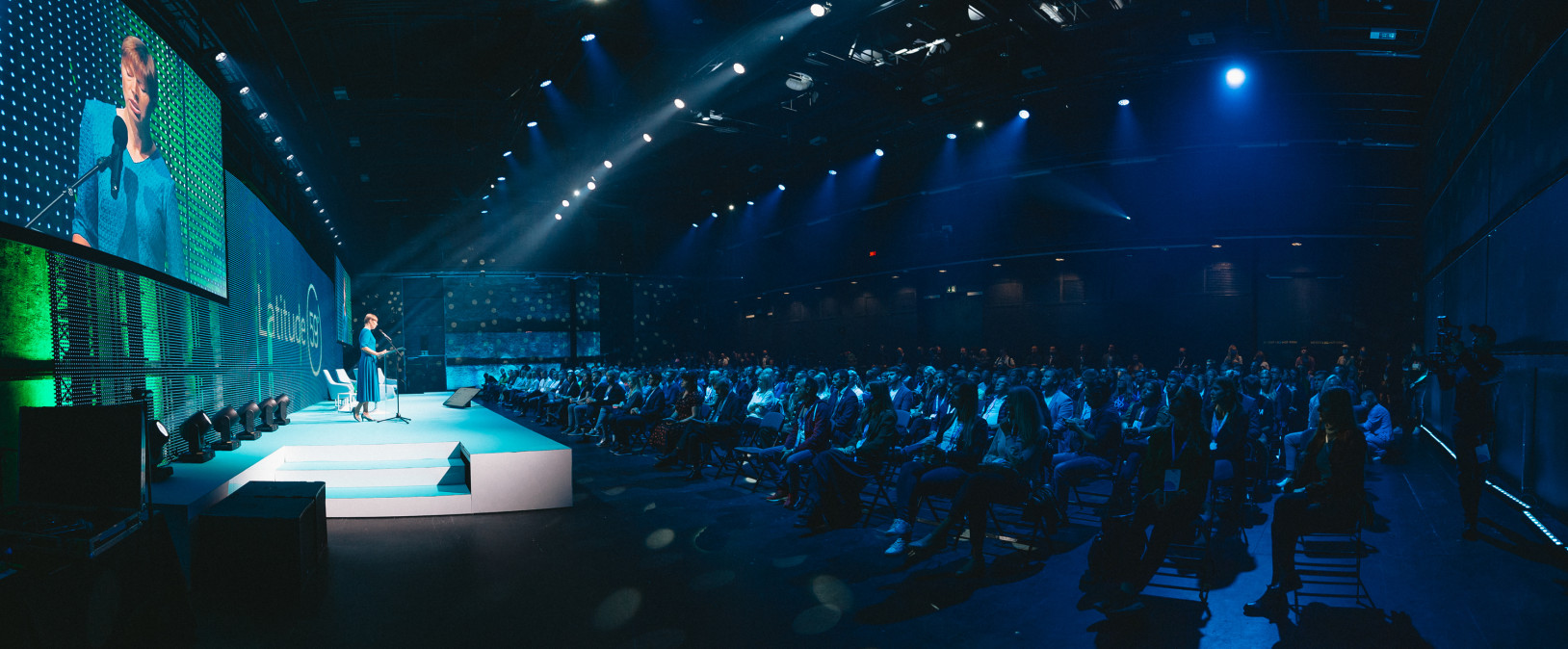How to Build an Event Marketing Strategy that Works
Event marketing can be a minefield, especially when you’re competing in a hugely competitive marketplace. Events, and their organisers, have to respond to multiple challenges these days: they need to be useful to attendees to encourage word-of-mouth for the following year’s event, while also getting attention in a media world which has never been more crowded.
Additionally, event marketing means giving delegates a trouble-free ticketing system; selling tickets for an event is the most important thing when it comes to making money on your conference, but even then, there are crucial ways to keep people engaged once they’ve signed up.
We wanted to give you an event marketing case study that could help you plan your next great event. To do so, we spoke to some of the people responsible for two leading European tech-themed events: LOGIN in Lithuania, and Latitude59 in Estonia.
Here are some crucial points for you to bear in mind when hosting a conference or planning your event marketing strategy.
1. Don’t feel intimidated by the task ahead
When you begin work on an event, it might be a long way from the first day at the conference centre, but that doesn’t preclude the possibility of nerves. The enormity of the task can be enough to stress people out, but it depends on the way you look at it, and who you hire on your team, as Liisi Org, CEO of Estonia’s flagship startup and tech conference Latitude59, told us.
“It was very difficult to start the process because I didn’t have a team. And without a team you don’t do much. The moment I found my first people, I understood that we can do it. Some people joined as volunteers and eventually we had 13 people in Latitude59’s new team. It is important to find your people - who will match with your values and vision. And then we got to work.”
Liisi emphasised that it is important to be realistic about what can be done before all the team has been hired. You can create processes and plans, but mostly it will come together when they join. It is also important, as she saw it, to have a good mix of skills, personalities and experience within that team, because that leads to a collaborative and cooperative atmosphere. It is beneficial for every team member, but it also helps for seeing a bigger picture. Main goal for all of us was to have fun and organise the best Latitude59 ever.
2. Offer a rounded experience to guests
Even if your event is a B2B marketing conference (and there’s nothing wrong with that), delegates will have been to a lot of those. Increasingly, attendees at events expect a schedule which reflects not only the things they need in order to boost their own professional development, or to generate leads, but also what they need to have a successful life overall. Which is why talks and workshops on mindfulness, and mental health, but also personal development, are increasingly becoming part of the stage program.
“Latitude59 has had mental health in the list of topics for several years. This time our main themes were purpose and inclusion. We believe that the startup world can make a bigger impact than just earning revenue. It is time for all the companies to start thinking about what impact they’re making on the world.”
“With the organising team, most of us having been in the startup sector for quite some time now; we found the right topics, which were interesting for startup founders, investors, public sector, and other target groups. We had a clear vision to have practical and influential content on the stages.” Diversity was also a key this year’s Latitude59, and according to Liisi, 50% of all speakers at Latitude59 2022 were women. Next year they are planning to include other diverse groups too.
For Tomas Stasiukevičius, Content Manager at LOGIN, the Lithuanian tech and business event, the realisation that it could be far more than a conference came when Apple cofounder Steve Wozniak was a visiting speaker at an early event. Wozniak was so inspirational, and his talk so multi-faceted, that it sparked a wish in the event team to make similar occasions a reality.
“There is purely tech content - AI, robotics, and so on, but wellness and mental health has, recently, got the greatest attention. We also have a lot of topics on creativity. If topics don’t relate directly to the tech industry, that’s how people get new knowledge and skills,” explained Tomas.
3. Have a clear plan, but keep it flexible
For Gabija Mirinavičė, Brand Manager of LOGIN, planning is all-important when it comes to hosting a conference that is a success.
“One thing is to know the reason why you’re doing all this. It’s important to have a plan, but that it’s not set in stone. You have to adapt your plan.” Gabija used the example of the Covid-19 pandemic, the subsequent changes to event planning needed purely to keep the conference going, and the ensuing change in the topics delegates were interested in. “If the context changes, but your plan doesn’t, that’s a disaster.”
Another thing to bear in mind is that the kind of speaker, and also the format of the talk or workshop, needs to be something that changes from instance to instance. Gabija explained, “it’s important to remember that if you have all these speeches for 20 minutes each, on the same topic, it gets boring, so you need different kinds of activities. Moderated fireside chats are popular at the moment, and they’re good, but too many of them, and people get bored again. You need variety. There’s never too much content these days - better to have a lot than too little.”
4. Trust your team!
Liisi, Gabija, and Tomas all spoke glowingly about their teams, feeling that they provide the perfect balance needed for implementing an event marketing strategy while also maintaining a strong spirit.
For Liisi, not micro-managing the team was a key consideration. “I see my team working and I don’t interrupt them, because they all have their ‘why’, and we all have a bigger goal. I always tried to emphasise that to have fun - an event organiser’s job is super stressful, and we need to enjoy working together. For this reason, I wanted to hire people that seemed like ‘my people’.”
A ‘planning-a-conference’ checklist comes into it, but that checklist has to reflect reality. “I do have a mental checklist, and I still like to write things down in a notebook. As a team we used Trello for organising our work and had lots of team standup calls. Having a bigger picture that is divided into smaller goals really helps. What I tried to remind to my team was that ‘we have million things we want to do, but we need to be mindful about the resources and keep ourselves from overworking.’ Most of my team had a second job, so that made it challenging, but Latitude59 team was and is super motivated and I’m so grateful they came to be part of that adventure.”
5. Use an event management and ticketing application that works for you
Both LOGIN and Latitude59 use Fienta as their ticketing, marketing, and delegate-management software of choice. “We chose Fienta because of the price of the service, and how easily attendees can register and buy tickets and get information. A company like that? We definitely see all the benefits,” said Gabija.
Liisi affirmed this, saying, “It turned out to be more than just tickets. Fienta added Latitude59 to their own page as a highlighted event, and promoted it in its newsletter. They were just so helpful, and if you’re organising a conference, when it comes to the ticketing part - it’s very important to have things like tagging, and getting the event to the people who might be interested in it - right. With Fienta, we can do that.”


